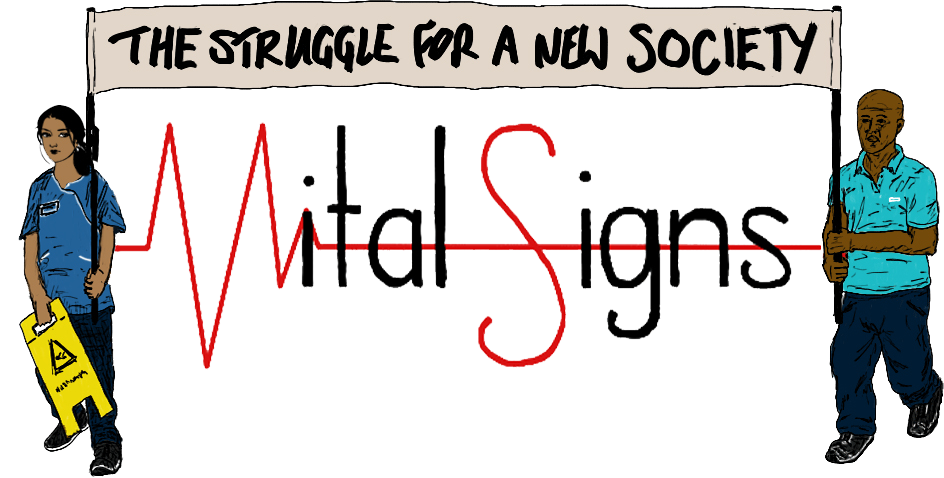At Southmead hospital, bank workers and supporters recently handed over 280 signatures of a petition against the exclusion of bank staff from the pay increase. The question, as always, is: what happens after a petition. What happens if management decides to ignore it or comes up with empty replies?
The recent form of action taken by health workers in Germany could be a next possible step: the ‘active lunch break’. We spoke to a friend who is employed as a nurse in Dachau hospital, who we had interviewed about his general experience before. You can watch a short video of their action here.
The background
Like in the UK, many hospitals decided to outsource certain hospital tasks to separate companies, such as portering, cleaning, catering, and bed wash. With outsourcing, the pay and conditions of the workers deteriorated – see, for example, the recent strike of outsourced CFM workers in Berlin. In the hospital chain where our friend works, they outsourced the ‘bed service’ on the wards, meaning, workers from a subcontracted company would strip the beds after patients left, clean the bed and surfaces with wipes and remake the bed. The wards where our friend works are fairly big, with up to 53 beds, and a high patient turnover of 20 patient admissions and discharges per shift.
A health reform some years back introduced a ‘flat-rate-per-case’ system, meaning, hospitals are paid a specific amount for a specific patient treatment, disregarding whether it takes shorter or longer. This encouraged hospital management to speed up processes, focus only on lucrative treatments and to reduce care staff in order to maximise profit. Outsourcing increased after that reform. The results were so bad that a second reform was introduced, which excluded ‘direct patient care’ from the flat-rate-system, which meant that work of qualified care staff ‘on the bed side’ is reimbursed by the health insurance.
This changed the strategy of hospital management: they now decided to let nurses and health care assistants do tasks again that were outsourced before, knowing that they would get their money back. Tasks like bringing food to patients are done by ‘care staff’ again. The care staff being already overstretched, the last straw was that management ordered them to do the ‘bed service’ on top of their usual duties. The outsourced workers who had done the task before were blackmailed: either you qualify as a care worker, or you lose your job. Some of the outsourced workers spoke only rudimentary German or were older, which meant that they didn’t feel confident to do the apprenticeship. At Dachau, dozens of them lost their jobs.
The resistance
Hospital workers in Erfurt collected 800 signatures against the attempt by management to force care staff to do the bed service. In Dachau, a workers group distributed leaflets inside the hospital, calling for a protest outside the hospital during lunch break. Management tried to enforce a ban on leafleting, but by that time many colleagues had taken pictures of the leaflet and forwarded it to others. To join together during lunch break and make the resistance against the management measure visible is a first step. After the lunch time protest the discussions on the wards about the bed service conflict intensified. Other steps should be taken on the wards themselves: workers can decide together, whether they prioritise care of patients on the ward, or changing beds and cleaning.
Our problem as workers is that cleaning and making beds sometimes gives us a needed break from the intensity of patient care! So we should not argue that we are ‘too good’ for these kinds of tasks. Sometimes it is nice to escort a patient to imaging, because it helps us to recover from drug rounds or patient washes. What we need is enough staff, enough time to do a variety of tasks. We also want to minimise a repetitive hierarchy on the ward, where we are reduced to doing only certain tasks.
Let us know what you think!




